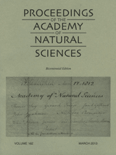
PROCEEDINGS OF THE ACADEMY OF NATURAL SCIENCES OF PHILADELPHIA
Scope & Guideline
Fostering collaboration in ecological research.
Introduction
Aims and Scopes
- Biodiversity Research:
The journal emphasizes studies that enhance understanding of biodiversity, including the documentation of new species, taxonomic revisions, and ecological assessments across various taxa. - Phylogenetics and Evolutionary Biology:
Research focusing on the evolutionary relationships among species, particularly through phylogenetic studies, is a significant aspect of the journal's content. - Paleontology:
The journal covers important findings in paleontology, including the discovery of fossils and discussions on extinct species, contributing to the historical context of biodiversity. - Ecological Studies:
Ecological research, including habitat assessments and environmental impacts, is a consistent focus, highlighting the interactions between species and their environments. - Contributions to Natural History:
The journal provides a platform for historical contributions to natural sciences, including rediscoveries of significant specimens and discussions on influential figures in the field.
Trending and Emerging
- Taxonomic Revisions and Descriptions of New Species:
There is a notable increase in papers focusing on taxonomic revisions and the description of new species, highlighting a growing interest in documenting biodiversity and clarifying species classifications. - Interdisciplinary Approaches to Ecology:
Emerging themes show a trend towards interdisciplinary research combining ecology with other fields such as geology and paleontology, indicating a holistic approach to understanding natural systems. - Fossil Discoveries and Paleobiological Studies:
The resurgence in paleontological research, particularly concerning fossil discoveries and their implications for understanding evolutionary history, reflects a renewed interest in the deep-time context of biodiversity. - Environmental Change and its Impact on Biodiversity:
Studies addressing the impacts of environmental changes, including sediment accretion and nutrient deposition, indicate a growing concern for the effects of climate change and habitat alteration on biodiversity.
Declining or Waning
- Invasive Species Studies:
Research specifically targeting invasive species has seen a decline, potentially indicating a shift towards more foundational biodiversity studies rather than applied ecological issues. - Conservation Biology:
Although conservation remains important, there appears to be fewer dedicated papers focusing on conservation strategies, signaling a potential waning interest in this area within the journal's recent publications. - Urban Ecology:
Studies addressing the ecological impacts of urbanization and human development have diminished, possibly reflecting a broader trend in favor of more classical ecological research.
Similar Journals

REVISTA CHILENA DE HISTORIA NATURAL
Connecting Research, Conservation, and EducationREVISTA CHILENA DE HISTORIA NATURAL, published by the SOCIETAD BIOLOGIA CHILE, is an esteemed open-access journal dedicated to the fields of Agricultural and Biological Sciences as well as Environmental Science. With an ISSN of 0716-078X and an E-ISSN of 0717-6317, the journal has maintained an impactful presence since its inception in 2000, offering unrestricted access to vital research that influences the biodiversity and ecological initiatives in the region and beyond. Positioned in the Q2 quartile for Agricultural and Biological Sciences and Q3 for Environmental Science as of 2023, REVISTA CHILENA DE HISTORIA NATURAL exemplifies its commitment to high-quality and influential research, evidenced by its respectable ranking in Scopus—89th percentile for Agricultural and Biological Sciences and 131st in Environmental Science. Operated out of Santiago, Chile, and covering a wide range of topics with a converging publication timeline from 2002 to 2024, this journal serves as a crucial resource for researchers, professionals, and students looking to deepen their understanding of natural history and its implications for future ecological preservation.
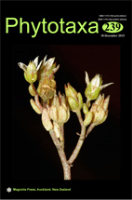
Phytotaxa
Pioneering Discoveries in Plant BiodiversityPhytotaxa, published by MAGNOLIA PRESS, is an esteemed journal in the fields of Plant Science and Ecology, Evolution, Behavior and Systematics. Established to cater to the growing need for high-quality research dissemination in botany, this journal presents the latest findings in plant taxonomy, systematics, and biodiversity. With its H-Index reflecting significant academic influence, and recognized as Q2 in Plant Science and Q3 in Ecology by Scopus, it stands as a reputable source for scholars and practitioners alike. The journal operates without open access restrictions, allowing for a wider reach to its audience. Positioned in New Zealand, Phytotaxa has been pivotal since its inception, contributing to the global understanding of plant diversity and ecology from 2010 to 2024. Its rigorous peer-review process ensures the high quality of published articles, making it an essential resource for researchers, professionals, and students dedicated to advancing the field of botany.

TAIWANIA
Championing open access for a sustainable scientific community.TAIWANIA is a prestigious and long-standing journal dedicated to the fields of ecology, evolution, and systematics, published by NATIONAL TAIWAN UNIVERSITY PRESS. Since its inception in 1947, this open-access journal has provided a vital platform for researchers to disseminate their findings, encouraging collaboration and innovation in the ecological sciences. With a 2023 impact factor placing it in Quartile 2 for Ecology and Quartile 3 for Ecology, Evolution, Behavior and Systematics, TAIWANIA is recognized for its quality and influence, ranking #267 out of 461 in Environmental Science and #426 out of 721 in Agricultural and Biological Sciences within Scopus. The journal currently publishes contributions from both local and international researchers, showcasing a diverse array of topics that address crucial ecological issues and facilitate the advancement of knowledge in the discipline. For those seeking rigorous research, engaging reviews, and a commitment to open access, TAIWANIA remains a significant resource for the global scientific community.

REVUE SUISSE DE ZOOLOGIE
Illuminating the Path of Zoological DiscoveryThe REVUE SUISSE DE ZOOLOGIE, published by the esteemed MUSEUM HISTOIRE NATURELLE, is a premier journal dedicated to advancing the field of zoology and its related disciplines. Established in 1964, this Swiss journal has consistently provided a platform for high-quality research in the areas of ecology, evolution, behavior, and systematics, currently holding a commendable Q3 ranking in these categories for 2023. With a rich publication history spanning from 1964 to 1979 and then from 1994 to the present, it serves not only as a significant repository of knowledge but also as a crucial resource for researchers, professionals, and students alike. While the journal is not open access, it remains a vital tool for those wishing to stay at the forefront of zoological research and innovation. Its commitment to disseminating groundbreaking studies makes it an indispensable asset for academic institutions and researchers globally, ensuring that pivotal findings in zoology continue to gain visibility and impact.
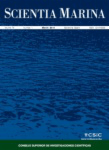
SCIENTIA MARINA
Fostering Global Collaboration in Aquatic ScienceSCIENTIA MARINA, an esteemed journal published by the Consejo Superior Investigaciones Cientificas (CSIC) in Spain, focuses on critical studies within the fields of Aquatic Science and Oceanography. With an Open Access policy since its inception in 1998, this journal facilitates widespread dissemination of research findings, significantly enhancing accessibility for researchers, professionals, and students alike. Currently, SCIENTIA MARINA holds a Q3 ranking in both categories for 2023, demonstrating its commitment to advancing knowledge in marine and aquatic environments. With a convergence of research years from 1996 to 2024, it remains a pivotal platform for innovative research, encompassing various aspects of marine biology, ecology, and environmental science. The journal serves as an essential resource for scholars aiming to contribute to the understanding and preservation of marine ecosystems.

Bulletin of the Peabody Museum of Natural History
Fostering Insights into Ecological DynamicsThe Bulletin of the Peabody Museum of Natural History, published by the Peabody Museum of Natural History at Yale University, stands as a pivotal journal in the fields of Animal Science and Zoology, Ecology, Evolution, Behavior and Systematics, and Plant Science. With an impressive impact factor and categorization in the top quartiles of these disciplines, the journal is recognized for its rigorous peer-reviewed research that contributes significantly to our understanding of biodiversity and ecological dynamics. Covering studies from 2010 to 2024, this journal plays a vital role in disseminating essential findings for scholars, professionals, and students alike. While it currently does not offer open access, its research is crucial for advancing scientific knowledge and fostering collaboration across various biological sciences. With its esteemed reputation and comprehensive scope, the Bulletin of the Peabody Museum of Natural History continues to be an important resource for those engaged in the study of natural history.
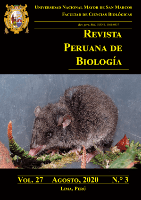
REVISTA PERUANA DE BIOLOGIA
Cultivating Excellence in Agricultural and Biological SciencesREVISTA PERUANA DE BIOLOGIA, an esteemed journal published by the Universidad Nacional Mayor de San Marcos, Faculty of Biological Sciences, has been a vital platform for disseminating significant biological research since its inception in 1974. With an Open Access model, this journal ensures that high-quality research is freely available to readers across the globe, fostering the advancement of knowledge within the field of agricultural and biological sciences. Despite proprietary challenges, the journal has secured a respectable Q3 category ranking in Agricultural and Biological Sciences and currently holds a 137th rank in Scopus among its peers. By embracing a comprehensive scope, REVISTA PERUANA DE BIOLOGIA encourages submissions that contribute to diverse biological topics, making it an essential resource for researchers, professionals, and students looking to enhance their understanding and expertise. With its ongoing commitment to excellence, this journal remains a cornerstone of biological research in Peru and beyond, reinforcing the importance of collaboration and knowledge sharing in the scientific community.
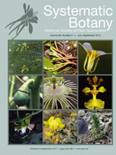
SYSTEMATIC BOTANY
Connecting Taxonomy with Evolutionary InsightsSystematic Botany, published by the American Society of Plant Taxonomists, is an esteemed journal focusing on the diverse fields of plant taxonomy, systematics, and evolution. With an ISSN of 0363-6445 and an E-ISSN of 1548-2324, this journal serves as a critical platform for researchers aiming to advance our understanding of plant biodiversity and evolutionary relationships. Operating since 1994, Systematic Botany has garnered significant recognition, achieving a Q2 ranking in Ecology, Evolution, Behavior and Systematics, and Plant Science categories, and ranking within the top half of Scopus for Genetics. The journal prioritizes publishing high-quality, peer-reviewed research, making it an essential resource for academics, practitioners, and students alike. Although it does not provide open access options, the journal's robust reputation in both American and international botanical research speaks to its pivotal role in disseminating vital scientific knowledge in the field. For those interested in the latest advancements in plant science, Systematic Botany is indispensable.

BULLETIN OF MARINE SCIENCE
Illuminating aquatic science for a better tomorrow.BULLETIN OF MARINE SCIENCE, published by Rosenstiel School of Marine and Atmospheric Science, is a prominent journal dedicated to advancing the field of marine science through scholarly research and peer-reviewed articles. With an ISSN of 0007-4977 and an E-ISSN of 1553-6955, this journal has been contributing to significant scientific discourse since its inception in 1973. Covering a wide spectrum of topics in aquatic sciences and oceanography, it has maintained a respectable position in the academic community, as evidenced by its Q3 ranking in both categories for 2023. Although currently not an open-access journal, it provides essential access to groundbreaking research that informs marine conservation, ecological studies, and atmospheric sciences. Situated in the United States at 4600 Rickenbacker Causeway, Miami, FL 33149, the journal serves as a vital resource for researchers, professionals, and students seeking to engage with the latest findings in marine science and foster a deeper understanding of our oceans.
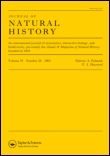
JOURNAL OF NATURAL HISTORY
Pioneering Insights into Natural SystemsThe Journal of Natural History, established in 1967, is a pivotal academic resource published by Taylor & Francis Ltd. With an ISSN of 0022-2933 and an E-ISSN of 1464-5262, this journal is a cornerstone in the field of Ecology, Evolution, Behavior, and Systematics. Ranked Q2 in its category as of 2023, it stands out with a Scopus ranking of #477 out of 721, reflecting its influence and relevance, particularly in the agricultural and biological sciences. The Journal of Natural History aims to disseminate high-quality, peer-reviewed research that contributes to our understanding of biodiversity and ecosystem dynamics. Although it does not operate under an open-access model, this journal remains accessible through various academic libraries and platforms, making it an essential resource for researchers, professionals, and students striving to advance their knowledge in natural history. With its long-standing commitment to excellence, the journal plays a crucial role in shaping discourse and fostering innovation in ecological research.